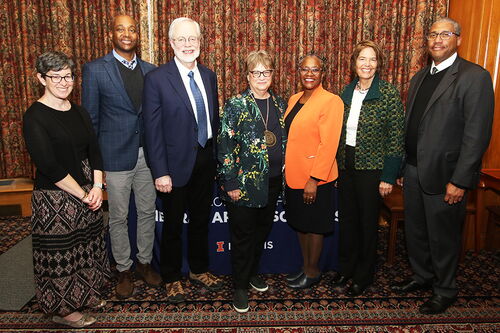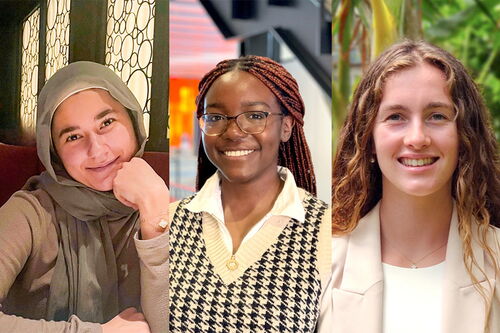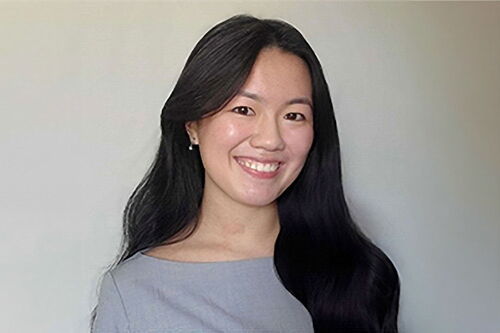The long road to making a difference
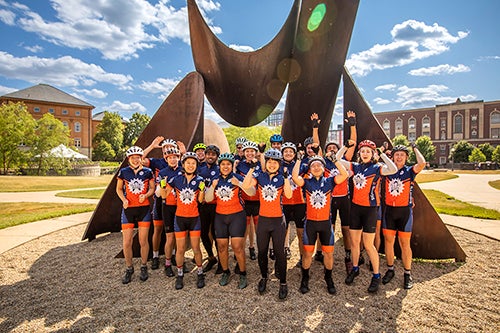
“I truly feel like what I am doing is making a difference,” said Olivia Ross, a psychology major, in the midst of a bicycle ride across the country. “Even though I may not be able to cure cancer myself, knowing we are funding scientists who might be able to is so special.”
Ross is part of a long bicycle ride that began on May 27 in New York’s Central Park, as 18 Illinois students and alumni embarked on a summer-long, 4,000-mile journey across the United States. It’s part of a years-long haul: since the first ride in 2007, the Illini 4000 non-profit has participated in 16 total cross country rides as a way to raise money and awareness for cancer research.
The Illini 4000 has donated more than $1.3 million to cancer research since it began, according to its website. This year alone it has raised more than $65,700.
While on the road the bicyclists are collecting stories for The Portraits Project, the heart of their program. Through it, people they encounter along the way share how they respond to cancer based on their unique and individual lifestyles. The riders have interviewed cancer survivors, patients, and caregivers from all walks of life to show how cancer impacts the American lifestyle. The stories are shared on the website.
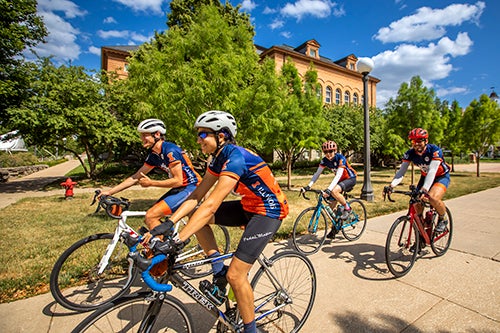
The riders passed through Urbana-Champaign in mid-June before continuing west. Aside from designated rest days, the bicyclists ride anywhere from 39-101 miles per day.
According to rider Jaylen Patel (BS, ’23, actuarial science), a typical day begins at 4:40 a.m., when the bicyclists start their day in a church, school, YMCA, or other spot that a host has made available to them. Once everyone collects their gear and loads the follower van, they have a quick team breakfast. Then, around 6 a.m., they assemble with their bicycles for a ritual called morning circle.
It's a time where the riders reflect on what their day will be, from reviewing their route to dedicating their ride for the day. Then the team breaks into smaller groups which then leave for the day's ride in intervals of 15 minutes. The team does this as a way to keep traffic to a minimum.
Preparing for a 77-day ride is no easy task, Patel explained. “Prior to the ride there is no real way to mentally and physically prepare just given that the frequency and volume of biking that you do is something you cannot emulate,” he said. Patel has learned that a balanced diet and a consistent sleep schedule were key to a successful ride.
Each day differs, but the rides usually end around 2-3 p.m. After riders get the chance to settle into their sleeping quarters for the night the team usually enjoys some form of bonding, which almost always includes dinner. Then they prepare for the next day’s ride.
For many the journey can be physically and mentally taxing. Nonetheless, most riders have some sort of motivation that keeps them going. Patel is motivated by locals they meet along the way and his loved ones back home.
“The locals whose cancer impact stories you document, that’s what kind of keeps you going each and every day,” he said.
As for himself, Patel rides for those he lost. “I decided to ride to kind of celebrate the honor of my two late grandparents. One passed away about two years ago due to cancer complications and another grandparent passed away just recently due to a heart attack.”
The bikers are scheduled to conclude their ride in San Francisco on August 12.






